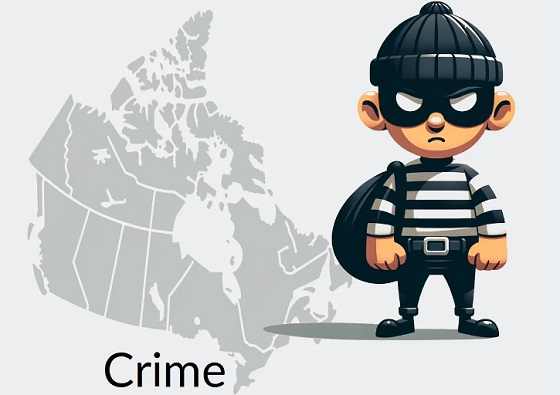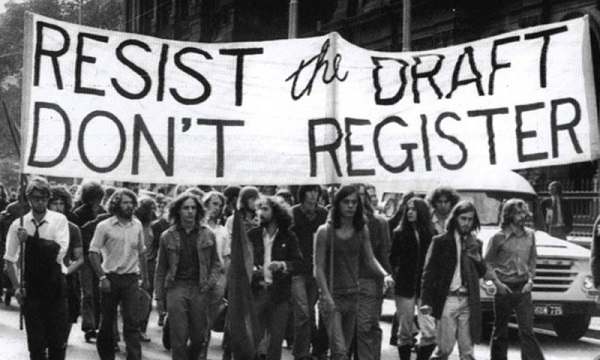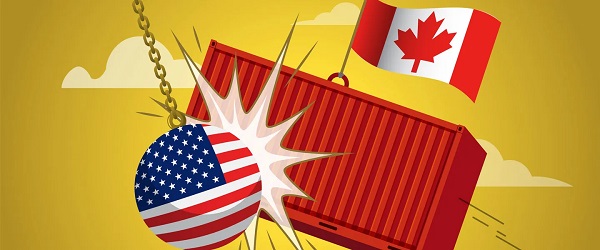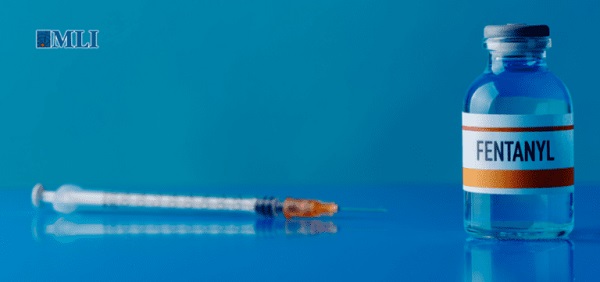Business
What Is It About Politicians and Corporate Bribery Scandals?


 By David Clinton
By David Clinton
Another possible case of influence peddling – this time on behalf of Brookfield Asset Management
On the surface, this is about a strange venture involving Canadian private equity firm Brookfield Asset Management – whose chair until a few weeks ago was Mark Carney. But it seems to me that this particular event is really just one example of a much larger pattern.
In 2016, as Matt Taibbi recently wrote, the U.S. Justice Department settled a claim against the Brazilian construction conglomerate Odebrecht on a case “involving at least $788 million in illegal payments to officials all over the world, as a means of rigging bids and securing contracts.”
As the terms of the settlement were being negotiated, Brookfield made a big purchase from Odebrecht: a 57 percent stake in Rutas de Lima, a private road toll authority in Peru. According to the U.S. Justice Department, Rutas de Lima has demonstrably engaged in corrupt activities.
What’s of interest to us right now is how the 2016 settlement didn’t include – or even mention – Rutas de Lima. That, presumably, would be to Rutas de Lima’s considerable advantage, as their assets would thereby be shielded from the U.S. government. It’s notable that one of the two Justice Department officials who signed off on the settlement had – both before and after his time at Justice – also happened to work for a law firm that represented Brookfield in Washington.
None of which proves any wrongdoing on the part of Brookfield. But it does hint to an association between them and a combination of criminal behavior and political influence peddling. And it turns out that, not only does Brookfield still own Rutas de Lima in 2025, but they’re still actively engaged in legal efforts to recover profitable concessions lost after in the aftermath of the original prosecution.
To be clear, Mark Carney only joined Brookfield in 2020 – long after the Odebrecht settlement – so it’s unlikely any of this directly impacts him.
The thing is, that corporate bribery and government influence peddling are not exactly rare events. In fact, they’re not even rare in Canada.
Remember SNC-Lavalin? That’s the Montreal-based engineering and construction firm that got into some trouble back in 2018 when they were caught bribing (there’s that word again) Libyan officials with upwards of $48 million to secure contracts.
That was a problem. But the Liberal government in Ottawa seemed to have felt that a criminal conviction for SNC-Lavalin in the case would have been a much larger problem. A conviction, after all, would have limited the company’s ability to bid for future federal construction contracts.
During the summer of 2019, as you probably don’t recall, Ethics Commissioner Mario Dion concluded that Prime Minister Trudeau used inappropriate means in an attempt to “circumvent, undermine and ultimately discredit” the decision of the Director of Public Prosecutions. In other words, political heavy hitters went to bat to protect favored corporations from the consequences of an international case of criminal bribery (and fraud).
In the end, SNC-Lavalin Construction Inc. pleaded guilty to just one fraud charge related to Libya, and agreed to a $280 million fine and three years’ probation. Other charges were dropped, avoiding a full trial on the broader allegations. And SNC-Lavalin – since rebranded as AtkinsRéalis – is still happily signing on for many of the largest infrastructure projects in the country.
I suppose government contracts and bribery go together like peanut butter and jam. The Libyan scandal wasn’t even SNC_Lavalin’s first kick at the can. There was, after all, the McGill University Health Centre (MUHC) bribery scandal of 2007 where company executives funneled $22.5 million to MUHC executives to seal the $1.3 billion contract for the new Glen site hospital in Montreal.
But I’m specifically interested in the close personal relationships that seem to inspire powerful government officials to actively subvert the judicial process to cover for such massive crimes. Those seem to represent the greatest threat to our social contract. And, as we’ve just seen from developments in the Brookfield/Rutas de Lima case, they’re aren’t showing signs of disappearing.
2025 Federal Election
The “Hardhat Vote” Has Embraced Pierre Poilievre

 David Krayden
David Krayden
Blue collar and unionized workers are supporting Pierre Poilievre and the CPC
When President Richard Nixon won a landslide in his 1972 reelection, he did so by broadening his own personal popularity and the appeal of the Republican Party to blue collar and unionized workers. It was called the hardhat vote and many working people embraced Nixon because he seemed to be talking the same language as they were. Nixon talked about law and order and getting tough on crime; safer streets and harsher penalties for serious crime. Although unionized workers had traditionally voted for the Democratic Party and seen the Republicans as the party of the wealthy, by 1972 the Democrats had moved far to the left on social issues and were completely out of touch with average Americans who saw Democratic presidential nominee Sen. George McGovern as being soft on crime and approving of the anarchy on the streets.
It’s precisely the language that Conservative Party of Canada leader Pierre Poilievere is speaking in the 2025 federal election. As support for the New Democratic Party has collapsed throughout the election campaign, don’t think most of it is going to the Liberal Party. Poilievre has been targeting blue collar workers for years with his emphasis on the trades and talking about middle class tax cuts and safe streets. A factory or construction worker is middle class and just want an affordable lifestyle for their families. They don’t have a lot of time for the woke underbelly of the Liberals or the NDP and are increasingly reluctant to support either party because both have appealed to elites.
Listen to Karl Lovett, the president of the Local 773 of the International Brotherhood of Electrical Workers, talk about Carney corruption and why he is supporting Poilievre and the CPC in 2025.
“Mark Carney also failed to pay $5 billion in Canadian taxes by hiding his company’s assets in Bermuda above a bike shop. Hard to believe that information comes from Canada’s NDP, or at least who is left of them, because the irony is, Mark Carney has eaten all those people alive. Even the mayor of Lima has warned Canadians not to vote for Mark Carney, and why for ripping him off the poorest of the poor people in Peru. That’s who he ripped off,” Lovett said.
“Listen, there are countless other outrageous examples proving that Mark Carney doesn’t give a damn about the Canadian working man. And now, as prime minister, which he’s not, Carney is promising to put carbon tax and tariff on the auto industry. It’s another rip-off screen that’s right. We’re getting punched by Trump on one side of the border, and Carney plans to punch us on this side of the border, also pretending it’s all about climate change, and now he’s made millions off the workers’ backs. He wants more than money. He wants more power. He wants all of the power to do whatever he wants to do. Mark Carney cannot be trusted with this power. Mark Carney cannot be trusted to protect workers,” Lovett continued.
The union leader told a cheering crowd that “Mark Carney is in it for himself, and when he loses this election, you can bet Mark Carney is going to leave Canada in a New York minute. But there’s hope, there’s hope, there’s our last hope. His name is Pierre Poilievere – the .only hope for Canadian workers. You see Mark Carney fooled Justin Trudeau. We can’t let him keep fooling us.”
“Local 773, which I represent, knows Pierre Poilievre very well. We can proudly tell you that Pierre has our back. Pierre has been putting Canadian people to work and Canadian workers. First, local 773 began working with Pierre Poilievre, the Conservative Member of Parliament Chris Lewis, some years ago, when it became all too clear that the Liberal Party had zero interest in helping out workers. Upon winning the leadership of the party, Pierre made Local 773 his very first priority, he came to my union hall. Pier made the Local 773 Visitor Training Center, and he met all our workers, and he made a pledge to me; he’s not going to turn his back on us, and I believe him,” Lovett said.
Toronto Sun columnist Joe Warmington agreed with me and you can hear that entire interview, below. “Labor wants to work, and they want to, you know, build things, and they want those good, paying jobs, and that’s what Poilievre has always been about, you know.”
“He wants more power. He wants all of the power to do whatever he wants to do. Mark Carney cannot be trusted with this power. Mark Carney cannot be trusted to protect workers,”
“Again, it’s hard to know, but I always felt … and I still think that Poilievre is going to pull this off because of these reasons that you’ve raised today, I never really bought into and again, I’m just one person’s opinion, and I go on the ground. In the air, the polls are saying, I know there’s this main street poll today, maybe it’ll swing differently. But in the air, it says one thing, and on the ground, it says another thing. And that clip you just showed, that’s the ground, that’s where the workers are, that’s where the families are.”
2025 Federal Election
Poilievre will cancel Mark Carney’s new Liberal packaging law and scrap the Liberal plastic ban!

From Conservative Party Communications
Conservative Leader Pierre Poilievre promised today that a new Conservative government will stop Mark Carney’s proposed Liberal food tax and scrap the existing Liberal plastic ban. Poilievre will:
- Stop proposed new labelling and packaging requirements that will raise the cost of fresh produce by as much as 34% and cost the average Canadian household an additional $400 each year.
- Scrap the Liberal plastics ban, including the ban on straws, grocery bags, food containers and cutlery, and other single-use plastics, letting consumers and businesses choose what works for them.
- Protect restaurants, grocers, and low-income Canadians from one-size-fits-all packaging rules that disproportionately affect those who can least afford it.
“After the Lost Liberal Decade, many Canadians can barely afford to put food on the table. And now Mark Carney and the Liberals want to make it even harder with a new food packaging law that will raise the price of food–again,” said Poilievre. “A new Conservative government will keep food prices down by scrapping the Liberal plastic ban and stopping Carney’s new Liberal food tax.”
After a decade of out-of-control spending and massive tax increases, families are spending $800 more on food this year than they did in 2024, and food banks had to handle a record two million visits in a single month. In Montreal, 44 percent of CEGEP students are experiencing some form of food insecurity, while places like Hawkesbury, Kingston, Toronto and Mississauga have all declared food insecurity emergencies.
And food prices are still rocketing upwards, surging by 3.2% over the last year, with no end in sight. In the last month alone, food inflation increased by 1.9 percentage points—the largest monthly jump in food prices in decades.
As if this wasn’t bad enough, Liberals have made life even more expensive and inconvenient for Canadians by banning plastics – including everything from straws to bags to food packaging. The current Liberal ban on single-use plastics will cost Canadians $1.3 billion dollars over the next decade.

Now Mark Carney wants to make it worse by adding complicated and costly new food packaging rules that will drive up the price of food even more–in effect, a new Liberal food tax. Plastic food packaging makes up 1/3 of all plastic packaging in Canada. The proposed Liberal food tax will cost the average Canadian household an additional $400 each year, waste half a million tonnes of food, decrease access to imported fruit and produce, and increase food inflation. The Chemistry Industry Association of Canada has also warned that this tax will put up to 60,000 Canadians out of work.
“The Liberals’ ideological crusade against convenience has already driven up food prices and the last thing Canadians need is Mark Carney’s new food tax added directly to your grocery bill,” said Poilievre. “The choice for Canadians is clear, a fourth Liberal term that will make food even more expensive or a new Conservative government that will axe the food tax and bring back straws, grocery bags and other items, to make life more affordable and convenient for Canadians – For a Change.”
-

 John Stossel2 days ago
John Stossel2 days agoClimate Change Myths Part 1: Polar Bears, Arctic Ice, and Food Shortages
-

 Opinion2 days ago
Opinion2 days agoLeft Turn: How Viet Nam War Resisters Changed Canada’s Political Compass
-

 Energy2 days ago
Energy2 days agoStraits of Mackinac Tunnel for Line 5 Pipeline to get “accelerated review”: US Army Corps of Engineers
-

 COVID-1913 hours ago
COVID-1913 hours agoThe Pandemic Justice Phase Begins as Criminal Investigations Commence
-

 COVID-192 days ago
COVID-192 days agoTamara Lich and Chris Barber trial update: The Longest Mischief Trial of All Time continues..
-

 Autism12 hours ago
Autism12 hours agoRFK Jr. Completely Shatters the Media’s Favorite Lie About Autism
-

 Censorship Industrial Complex1 day ago
Censorship Industrial Complex1 day agoCIA mind control never ended – it evolved and went mainstream
-

 2025 Federal Election1 day ago
2025 Federal Election1 day agoPRC-Linked Disinformation Claims Conservatives Threaten Chinese Diaspora Interests, Take Aim at PM Carney’s Debate Remark












